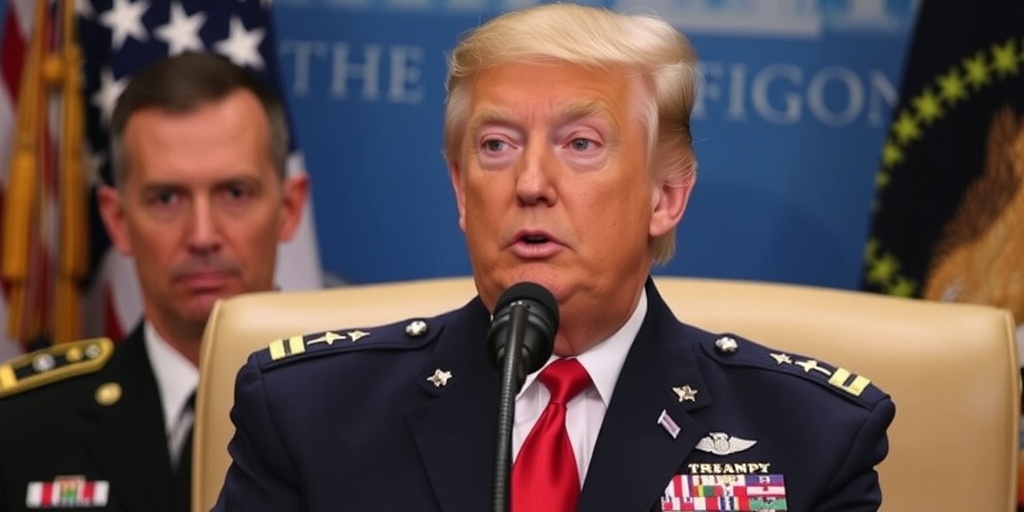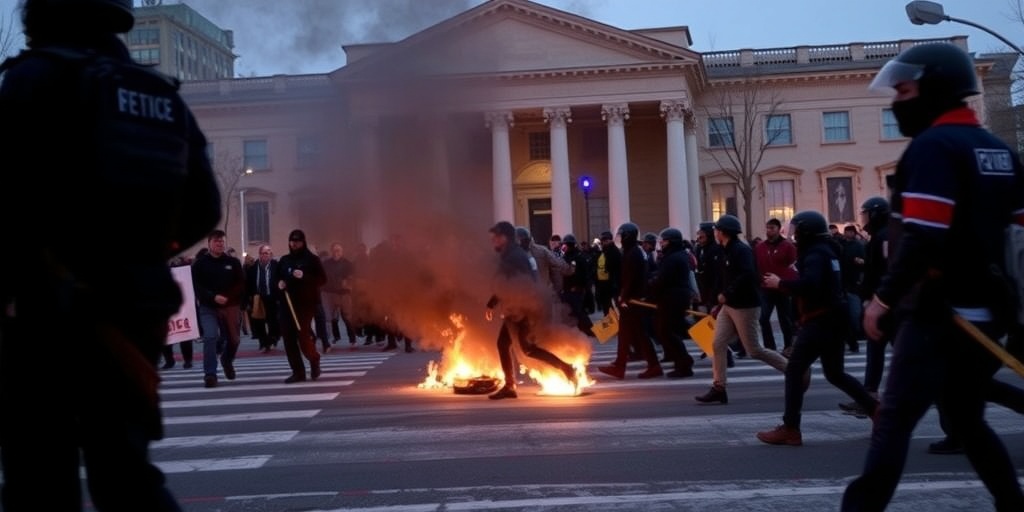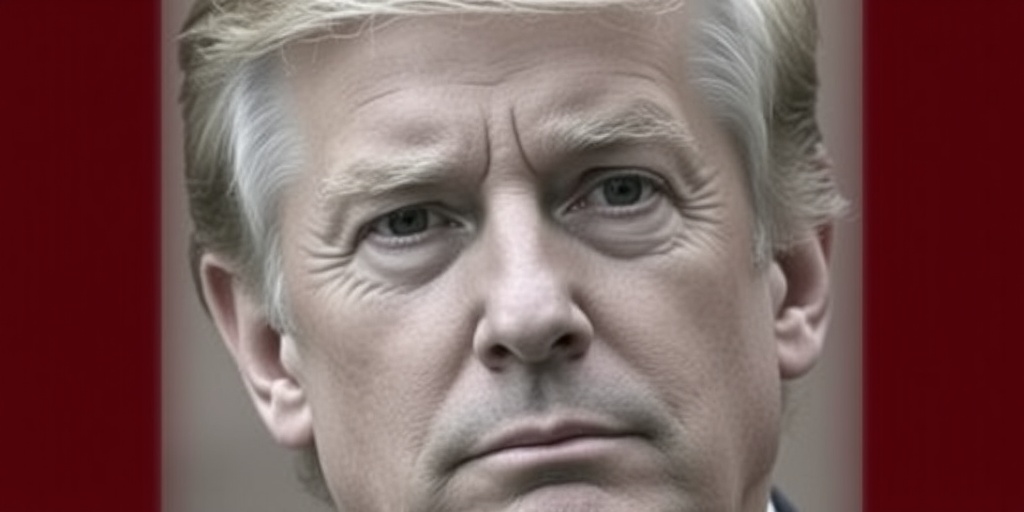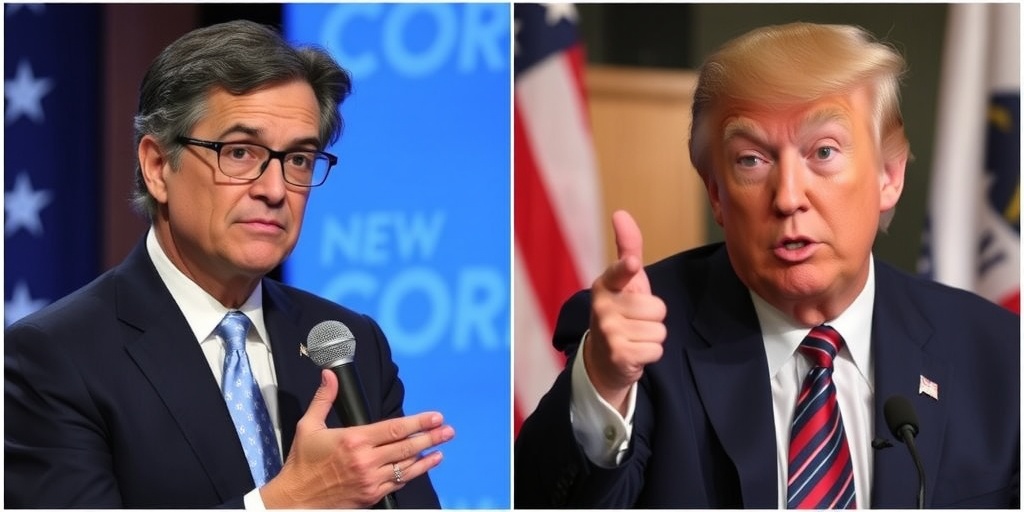Now Reading: Trump Shifts Blame for Ukraine War to Zelensky, Not Putin
-
01
Trump Shifts Blame for Ukraine War to Zelensky, Not Putin
Trump Shifts Blame for Ukraine War to Zelensky, Not Putin
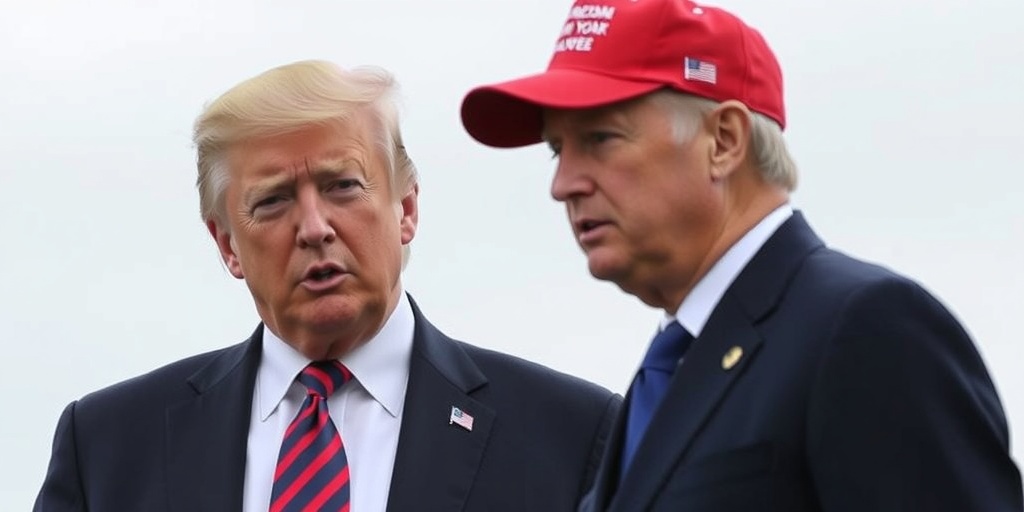
Trump’s Revisionist View of Ukraine Conflict Raises Alarm Among Allies
In the wake of Russia’s devastating invasion of Ukraine in 2022, which aimed to eliminate the nation as an independent state, the United States stepped up to support Ukraine, elevating President Volodymyr Zelensky to the status of a global symbol of resistance. However, three years later, former President Donald Trump is dramatically rewriting the narrative surrounding the conflict. In his recent statements, Trump presents Ukraine not as a victim but as a perpetrator, accusing Zelensky of being a “dictator without elections” who purportedly ignited the war and manipulated the U.S. into providing military and financial assistance.
This shift in perspective marks a significant turning point in American foreign policy and sets the stage for unprecedented negotiations with Russia, which have raised concerns that Ukraine’s interests may be sacrificed. By branding Zelensky as a villain in this painful saga, Trump appears to be laying the groundwork to withdraw support from an ally that is currently under siege.
The recent heated exchange between Trump and Zelensky underscores the dramatic change in attitude now emanating from the White House. Trump, who has long held a favorable view of Russian President Vladimir Putin, delivered a particularly shocking rebuke aimed at Zelensky. He claimed that Ukraine had instigated the war and insinuated that Zelensky deceived the U.S. into spending an exorbitant amount on a conflict that would be unwinnable.
Trump’s remarks, which mischaracterized the reality of the situation, suggested that Zelensky was not fighting to defend his country but instead manipulating international support through charm. This form of historical revisionism disregards the truth—that Ukraine was invaded, and following that act of aggression, the U.S. under President Joe Biden ramped up its military and financial aid. Furthermore, the financial aid provided to Ukraine is substantially less than the amount Trump mentioned in his claims.
Amidst these provocations, Trump labeled Zelensky an enemy of democracy, claiming he was “very low in Ukrainian Polls” and had failed to conduct elections during wartime. While it is true that Ukraine has paused elections during this ongoing conflict to focus on national defense, Zelensky was elected overwhelmingly in 2019 in a contest the international community acknowledged as free and fair—a stark contrast to Putin’s dubious tenure that has endured for over two decades. A recent poll also showed that Zelensky enjoys a 57 percent approval rating, surpassing Trump’s own standing.
Trump’s derision for Zelensky was accompanied by silence on Putin’s actions, drawing significant backlash from European leaders, Democrats in the U.S., and even a few Republicans willing to publicly distance themselves from the former president’s rhetoric. Former Vice President Mike Pence was among those who called out Trump, stating unequivocally that Ukraine did not start the war—rather, it was a brutal and unprovoked invasion by Russia. Similarly, Trump’s former deputy national security adviser, Charles Kupperman, likened Trump’s disposition toward Ukraine to appeasement tactics employed by British Prime Minister Neville Chamberlain before World War II.
While Trump’s remarks delighted Moscow, with senior Kremlin officials agreeing with his assessment of Zelensky, it has raised alarm bells among Western allies who fear that Trump’s statements might lead to a policy shift away from supporting Ukraine. This behavior is not without precedent; throughout history, leaders like Franklin D. Roosevelt and John F. Kennedy have had fraught relationships with wartime allies. However, Trump’s critique stands out for its overt public vitriol against a nation struggling for survival.
Even prior to the invasion, Trump had shown reluctance to support Ukraine, indicating he could tolerate Russia’s annexation of Crimea, which would lead to a diminishing recognition of Ukraine as an ally. His view of Ukraine has further soured over claims that they meddled in the U.S. elections, framing them as an adversarial force rather than a partner battling for democratic values.
Continuously questioning the rationale behind U.S. financial support for Ukraine, Trump has portrayed Zelensky as an ineffective leader, attributing mass casualties and devastation to his governance. He has framed his concerns about the war’s toll in terms of blame directed at Zelensky rather than acknowledging the aggressor, Vladimir Putin.
As the geopolitical landscape continues to shift under the weight of Trump’s rhetoric and actions, the implications for Ukraine and the broader international order remain uncertain. Trump’s perspectives resemble an appeal to a segment of the American populace resistant to foreign aid, while potentially undermining efforts to counter Russian aggression. The evolving narrative presents challenges for U.S. foreign policy, as allies must reconcile Trump’s bold assertions with their commitments to uphold democratic ideals globally.
Stay Informed With the Latest & Most Important News
Previous Post
Next Post
-
 01New technology breakthrough has everyone talking right now
01New technology breakthrough has everyone talking right now -
 02Unbelievable life hack everyone needs to try today
02Unbelievable life hack everyone needs to try today -
 03Fascinating discovery found buried deep beneath the ocean
03Fascinating discovery found buried deep beneath the ocean -
 04Man invents genius device that solves everyday problems
04Man invents genius device that solves everyday problems -
 05Shocking discovery that changes what we know forever
05Shocking discovery that changes what we know forever -
 06Internet goes wild over celebrity’s unexpected fashion choice
06Internet goes wild over celebrity’s unexpected fashion choice -
 07Rare animal sighting stuns scientists and wildlife lovers
07Rare animal sighting stuns scientists and wildlife lovers













